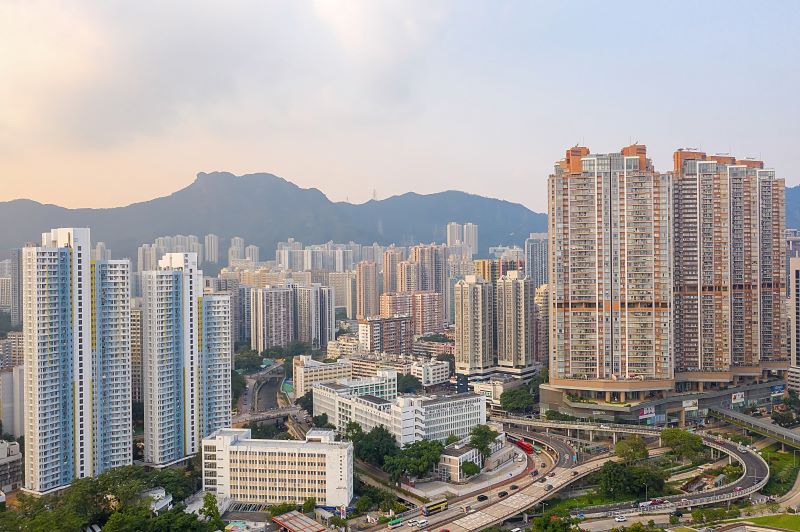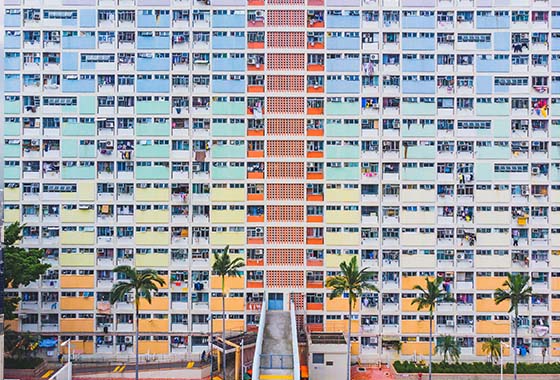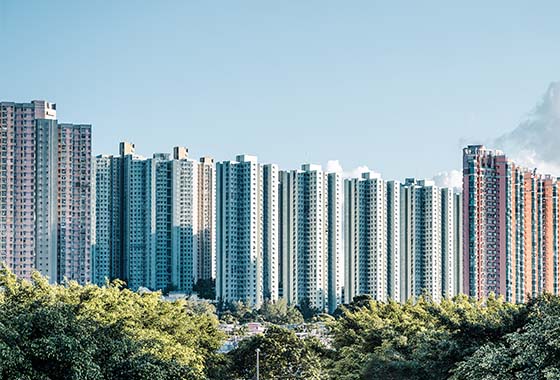How Hong Kong can untangle the Gordian knot of public housing
This article appeared originally in the SCMP on 24 June, 2022.
Authors: Ryan Ip, Research Director and Head of Land & Housing Research, and Calvin Au, Assistant Researcher at Our Hong Kong Foundation.

After five waves of Covid-19, Hong Kong’s progress in public housing construction has severely slowed down. The Housing Authority announced in early 2022 that the average waiting time for public rental housing had reached six years.
The news did not stir much public interest at the time, with our city focused on fighting the coronavirus. However, the issue became more pressing when the figure reached another record high in the spring. With the worst of the pandemic over, many Hongkongers expect public housing projects to be back on track. But are they getting their hopes up too soon?
The truth is that Covid-19 was never the main cause of the housing shortfall. According to the Transport and Housing Bureau’s letter to the Legislative Council, 11 projects under the Housing Construction Programme for 2021/22 to 2025/26 have been delayed, among which only three are “affected by Covid-19”.
This involves around 2,300 flats, constituting just 11 per cent of all delayed flats – far less than the 87 per cent “affected by the inclement weather” and the 66 per cent “affected by unforeseen geological conditions”. This proves that the pandemic is merely a scapegoat.
As the saying goes, “the tree falls not at the first stroke”. The Housing Authority’s pledge of a three-year public rental housing waiting time was already broken in 2015. Since then, the waiting time has almost doubled. This dire situation can be attributed to constant delays. An overview of the construction programmes of the last eight years shows that on average, 15 per cent of public housing projects were delayed each year.
The known delays are just the tip of the iceberg. Currently, the government only discloses information about projects to be completed in the first five years of the coming 10-year period. Delays already occur annually within those five years, even when the construction earmarked accounts for only one-third of the total production of the 10-year period. It can be safely assumed, therefore, that the problem will be even more severe in the second five-year period.
To stop history from repeating itself, the government must identify the causes of these delays and make amends promptly. Our Hong Kong Foundation’s recently launched “Annual 10-Year Housing Supply Forecast” delves deeply into three delayed public rental housing projects in Tai Po, Kwai Chung and Tuen Mun, all of which are in their second five-year period, yet have had their completion dates pushed to 2030 or beyond.
The development in Chung Nga Road West, intended to comprise 1,030 flats, is all talk and no action. The government conducted a district consultation for the project’s design back in 2014 and the Tai Po district council gave its opinions. In 2016, 2018 and 2021, further consultations between the two parties were carried out. The development plan is still yet to be formulated.
Clearly, there is a lack of coordination between government departments. Issues must be addressed separately by representatives of different district council departments, and it takes at least two years to revise each design. All this has delayed the project by over seven years, with the whole development taking more than 16 years.
In Kwai Chung, three public rental housing projects are stuck in limbo. A proposal to build two estates on Tai Wo Hau Road would provide 787 flats, and rezoning commenced in 2014, but little else has been done. Similarly, a project on San Kwai Street would supply 700 flats and the rezoning procedure began in 2018, but no progress has been made.
The third project, Kwai On Factory Estate, is one of four factory estates earmarked for conversion into public housing by the Housing Authority. While the rezoning procedure for the other three estates began in 2021, there is no clear schedule for Kwai On Factory Estate.
All these projects have been delayed by a judicial review of a private redevelopment project in the district. An outline zoning plan cannot be approved before the disputes are settled, inflicting collateral damage on public housing development in Kwai Chung.
Finally, in Tuen Mun, proposals for both private and public housing on San Hing Road face obstacles. A public rental housing project providing 8,000 flats was initiated in 2014. The development site includes an area covered by two private residential developments, an arrangement that was previously approved. However, the government then announced that another feasibility study was needed, delaying construction.
Meanwhile, the private developers wished to increase development density, and, after having their request rejected, called for a judicial review. As a result, both private and public residential developments came to a halt. It was not until 2021 that the feasibility study for the public housing development was completed, while the application for a judicial review by the private developers was dismissed. Even so, there is no guarantee that the disputes are over.
As the pandemic is gradually brought under control, Hong Kong’s severe housing shortage is bound to return to the spotlight. Given the commitment to housing expressed by the incoming administration, we believe the Housing Bureau and its departments will indeed roll up their sleeves and take immediate steps to expedite the provision of public housing.
To help these efforts, we propose three viable approaches. First, appoint a project manager for each housing project to supervise the progress of various departments, streamline the public consultation process, and keep the public regularly updated via a one-stop platform. Second, pass legislative proposals to streamline development-related statutory processes as soon as possible. Third, harness market forces to facilitate land and housing supply and foster public-private partnership.



